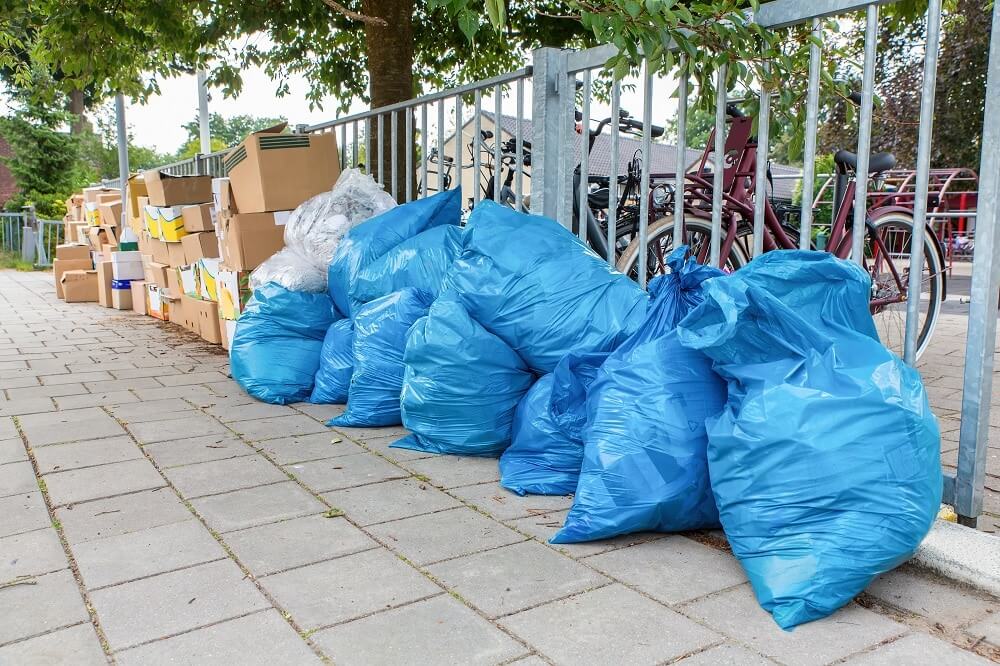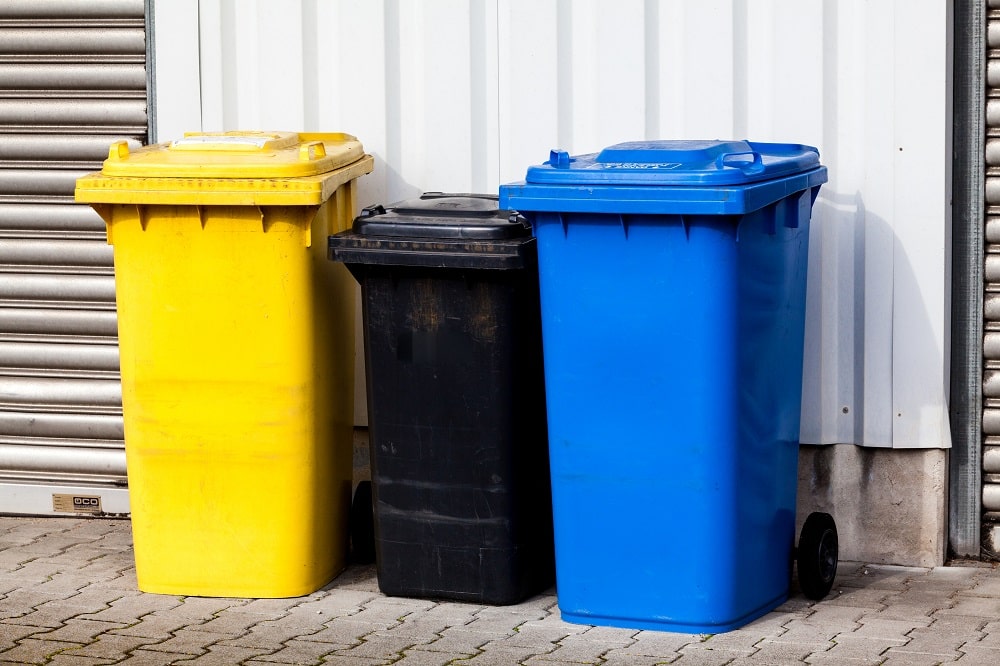In the following article, KC Dumpster covers the waste management rules you need to know before you invest in a roll-off dumpster. These rules pertain to the types of materials that you can actually throw away. There are many items that can be added to dumpsters without any problems at all. However, there are certain items that cannot be mixed in with regular materials. Instead of being disposed of using standard procedures, learn what to do with the materials that need to be separated from the rest! Here is a quick overview of waste management rules that must be abided by if you decide to rent and utilize a standard roll-off dumpster for your home or business.
Why People Use Roll-Off Dumpsters
There are several reasons why both people and businesses request a roll-off dumpster to be dropped off at certain locations. For example, if a homeowner is doing any type of renovations or projects to improve their house, they will likely have a sizable amount of material to dispose of.
Construction businesses are well-known for utilizing one or more of these dumpsters which must be emptied on a daily basis. The materials may include drywall scraps, shingles, boards, nails, and a multitude of other items. However, some of these items cannot be mixed together.
In order for the materials to be properly disposed of, certain types of plastic, metal, and even oil cannot be thrown in. Waste management rules must be followed, and by understanding what those rules are, you can dump appropriate types of materials into your dumpster.

Waste Management Rules Regarding Roll-off Dumpster Usage
The first thing that you should know is what you can put into a dumpster. In general, the rules are fairly simple. As long as it is standard types of debris or junk, as well as nonhazardous waste, it is allowed in a dumpster. A general list would include items like mattresses, tables, dried paint cans, water-damaged materials, rebar, dirt, and clothing. Additionally, it’s possible to throw out old toys, boxes, fire damaged items, sinks, and even roof shingles. In fact, when construction companies use a dumpster, they are often adding lumber, roofing materials, and even debris from a demolition project. In addition to this, virtually every type of flooring material is permissible, as well as the siding from buildings and homes, all of which can be mixed together.
Different Types Of Debris That You Should Keep Separate
In regard to residential projects that are simply removing standard junk and debris, everything can be thrown in together. This might include non-organic trash, cardboard, mold documents, carpet, and even organic material such as mulch, sod, and grass. If you are working on a construction project, you will want to keep separate specific items including metal, concrete, and roofing shingles, if possible. Doing so allows the waste management company to take these materials to specific locations to dispose of them properly.

Materials That You Cannot Place Into A Dumpster
Most people will have some type of liquid material, used on homes for painting or staining wood or other surfaces. These materials may include wood stain, lacquer, paint thinner, or any type of paint, with the exception of latex-based products. In most cases, instead of placing this in the dumpster, you must take it to the municipal solid waste facility so that it can be poured into containers for proper storage and subsequent disposal.
What is the reason for the waste management rules? Landfills do not allow certain materials to go in the ground because those specific materials can affect the aquifers through water percolation. Another item that you cannot simply throw into a dumpster is rubber tires. While there are billions of rubber tires produced, most of them must be disposed of properly. Although some will be in designated areas where tires are allowed, more companies than ever before are using pyrolysis machines to break these down to create burnable fuels.

Other Items That You Cannot Throw Into A Dumpster
Furthermore, there are a few items considered hazardous waste that cannot be placed into a roll-off dumpster. Most of the items are considered general waste management knowledge, but it is still important to touch on the hazardous items. Items include household cleaners, propane tanks, automotive fluids, resins, and medical waste. If you have any type of soil that you need to throw away which has absorbed pesticides or herbicides, this may also not be permissible.
Keep battery disposal separate from dumpsters as well, especially car batteries. Any type of dry cell battery could leak chemicals into the ground. At your local waste management system, they should have specific bins where you can place car batteries, and even lithium batteries, so that they can be treated and disposed of properly.
Final Waste Management Rules Regarding Roll-Off Dumpsters
There are a few other items worth mentioning that should be considered when it comes to waste management. KC Dumpster recommends not disposing of electronic items such as cell phones, computers, printers, stereo systems, and televisions in the roll-off dumpster. For example, cell phones have batteries. Batteries should not be disposed of in a dumpster or in the trash. If you can remove the battery from your cell phone, we recommend that you remove it and then dispose of the phone and the battery separately, in an eco friendly manner. If you cannot remove the battery from your phone, it should be disposed of along with other electronic items, at a special facility specific to this type of waste. These items are dismantled, stripped for parts, and the remainder is melted down and reused if possible at waste disposal facilities.
By following these simple waste management rules, your waste will be disposed of properly. A key point to remember is if an item does not have the capacity to degrade naturally, or if it could pose a hazard to aquifers in the ground, it should not be thrown into a dumpster. All other items that have been mentioned will be permissible, allowing you to quickly clean up your home, or your place of business, using a roll-off dumpster.
For more information on waste management and how we can help, Contact KC Dumpster! We are here to help and are advocates of safe and environmental waste management methods.
Leave A Comment